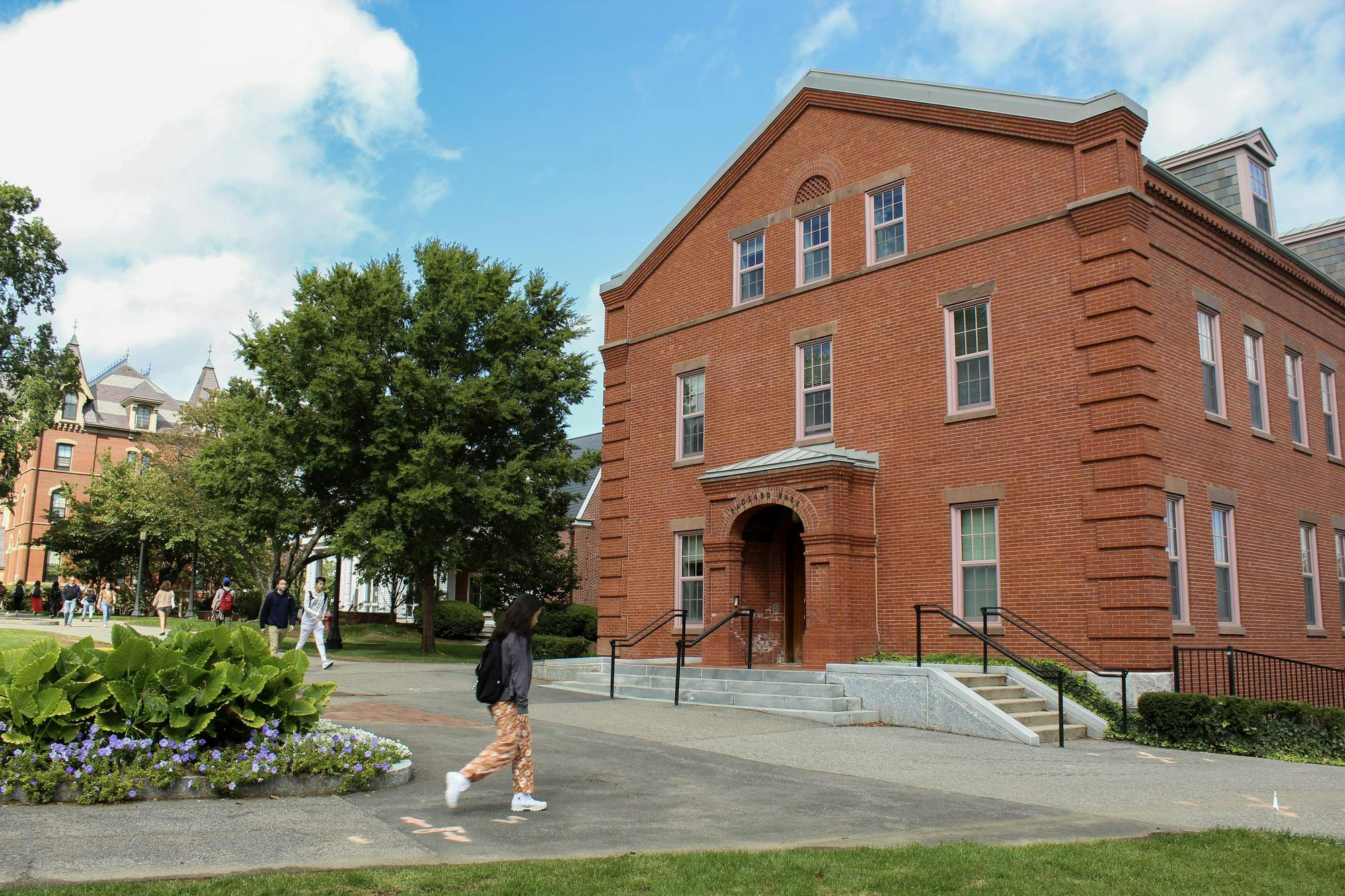Tufts’ new biannual political science publication, “The Great Wave: A Journal for the Study of Politics and Social Change at Tufts University,” published its inaugural issue this month.
The journal’s editorial board includes Professors Michael Beckley, Fahd Humayun, Meredith McLain and Nimah Mazaheri, with Tufts alumnus Brendan Hartnett (LA’23) serving as Associate Editor for the first issue. Volume 1 of “The Great Wave” features papers by Sophia Costa (LA’23), Frankie Michielli (LA’22) and senior Annie Rubinson.
Mazaheri, chair of the Department of Political Science, explained that the idea for the journal came from students in Tufts’ undergraduate political science honor society, Pi Sigma Alpha, which funded the first issue.
“Three of our students came up with the idea about two years ago … that would showcase some of the best work that’s being done in the area of political science, but [also] across the social sciences and humanities,” Mazaheri said.
The students envisioned a peer-reviewed journal with high standards for publication, where undergraduates would have a role in every aspect of the process. Faculty and students collaborated to review submissions for the inaugural issue, aiming to publish original and innovative research that students were doing.
“I think our inaugural issue … showcases the diversity of research that is being done here,” Mazaheri said.
Rubinson is an international relations major whose paper, “How to Prevent a War without Starting One: Strategies to Counter Chinese Naval Expansion in the Age of Anti-Access & Area Denial,” was published in the journal’s first issue.
“My research question was essentially, ‘How can the U.S. Navy better position itself to maintain the U.S.’ interest in the Asia Pacific region while also not provoking China or … starting an international conflict?’” she said.
Rubinson hopes that “The Great Wave” will encourage students to do original research. She said that the creation of the journal at Tufts lowered some barriers and was an appealing alternative to submitting her work for publication anywhere else. Seeing it chosen for the Tufts journal motivated Rubinson to keep researching and writing.
“Having had this first experience, [I’m] emboldened to try it again and start new projects and go back to the drawing board, even though it’s a lot of work,” Rubinson said. “It’s just very rewarding to see your ideas presented in this professional way.”
“Research is very intimidating,” Rubinson acknowledged. However, she explained that working with her professors and fellow students during the peer-review process made research as a field more approachable.
Volume 1 also includes a paper by recent graduate Sophia Costa examining how immigrant patrons engage with ethnic restaurants in their communities, and another by recent graduate Frankie Michielli investigating the root causes of a wave of mass protest in Chile in 2019.
Assistant Professor Humayun lent his insights on the launch of this interdisciplinary and student-run online journal in an email to the Daily.
“The idea behind the journal was to have a publication that could serve as a place for Tufts students across the social sciences and humanities to publish their original, empirical research,” he wrote. “We are hopeful that the journal, which is currently set to publish issues twice a year, will offer precisely that space to thoughtful and creative research by students at Tufts on questions of political and social relevance.”
“The Great Wave” welcomes written work that covers both domestic and international matters.
“We hope that anyone who is writing on issues broadly related to politics and social change, whether in the United States or around the world, sends us their original work,” Mazaheri said.
For Rubinson, the journal offers a unique opportunity to connect with fellow Jumbos who share her intellectual interests outside of the traditional classroom environment.
“It’s really special to have a place to engage with your peers that you may not have ever met before, but are interested in the same things,” she said. “Getting to connect with them in that way … is going to be very positive for the community.”
The journal is currently accepting submissions for its spring 2024 issue.






